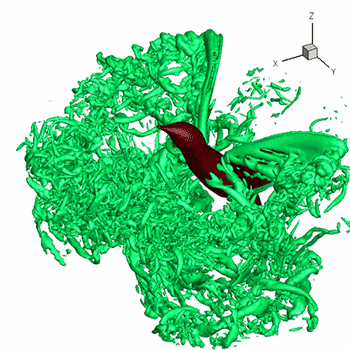First, rewrite the problem as #y=2sin(3x-pi/2) +1/2#
This is of the form #y=Asin(Bx-C)+D# where
#A=# the amplitude
#(2pi)/B=# the period
#C/B=# the phase shift
#D=# the vertical shift
In this example, the amplitude #A=2#. Amplitude is the vertical distance from the "midline" to the max or min. It is not the the distance from max to min.
Period #=(2pi)/B=(2pi)/3#. One complete cycle of the sin graph will be #(2pi)/3# horizontal units wide.
Phase shift #=C/B=frac{pi/2}{3}=pi/6# The graph will be shifted #pi/6# units to the right.
Vertical shift #D=1/2# units up.
Let's look at each transformation of the graph. First #y=sinx#
![enter image source here]()
Next, change the amplitude to #2#
![enter image source here]()
Now change the period from #2pi# to #(2pi)/3#
![enter image source here]()
Next, add a phase shift of #pi/6# to the right. The red graph has the phase shift. The blue is without the phase shift.
![enter image source here]()
Lastly, add a vertical shift of #1/2# units up.
![enter image source here]()

